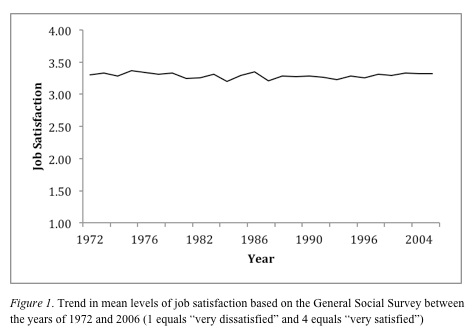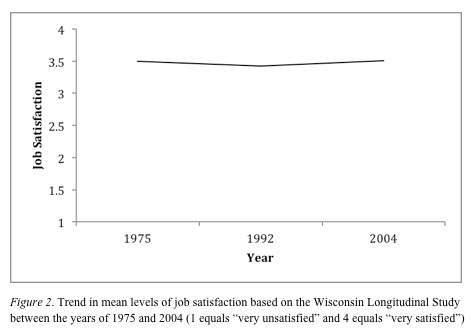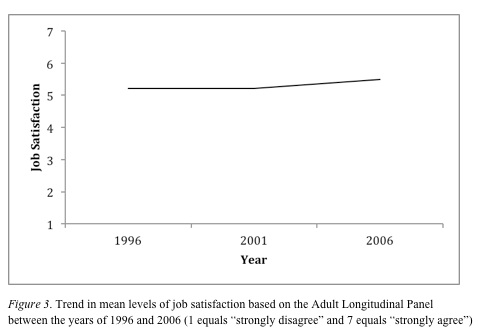Their results were reported in the April issue of The Industrial-Organizational Psychologist. Bottomline is they found job satisfaction “uniformly high from decade to decade” (p. 63). Bowling et al. stated, “job satisfactions scores were relatively high, and there appeared to be no systematic increases or decreases in job satisfaction over time” (p. 61). The figures below show the trends. [Note: The figures in the TIP article are incorrect. The correct figures below were obtained from the authors and presented here with the permission of TIP.]
Figures used with permission.
Bowling, N. A., Hoepf, M. R., LaHuis, D.M., & Lepisto, L. R. (2013). Mean job satisfaction levels over time: Are things bad and getting worse? The Industrial-Organizational Psychologist, 50 (4), 57-64.





 RSS Feed
RSS Feed